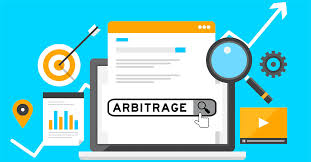It is important to know that Know Your Customer (KYC) verification is a crucial process employed by banks and other organizations to make sure they are engaging with legitimate customers and also to stop fraud, money laundering, and other illegal activities. This article will provide an overview the importance of KYC verification as well as its importance.
What is KYC?
kyc verification is a shorthand for Know Your Customer. It is a procedure which requires businesses, specifically financial institutions, to confirm that they are the identity of their customers. The process usually involves gathering and verifying personal data like a government-issued ID or proof of address and occasionally, a picture of the client. The purpose is to confirm an identity of the customer and determine the risk of conducting business with them.
Why is KYC Important?
Prevention of Fraud: KYC helps in identifying and verifying the identity of customers in order to avoid identity fraud and identity theft. By ensuring that the customer is the person they say they are, banks will minimize the risk that fraudulent transactions will occur.
Fighting money laundering: Money laundering involves concealing the origins of illicitly obtained funds. KYC is an essential instrument to stop money laundering by ensuring that the source of funds is legitimate.
Regulative Compliance: Many countries have strict regulations that require companies to carry out KYC checks. Conformity with these rules assists businesses in avoiding legal sanctions and protect their image.
In enhancing customer trust by adopting robust KYC procedures, companies show their commitment to security and comply, which can enhance the trust of customers and increase their confidence.
How Does KYC Verification Work?
The KYC process typically involves several steps:
Customer Identification Customer Identification: Customers must provide their personal details, like the full name, birth date and address. The information is typically verified through government-issued IDs, utility bills, or any other official document.
Customers Due Diligence (CDD): Businesses evaluate the risk of each customer by analyzing their financial habits and their transaction patterns. This aids in identifying suspicious actions that may indicate fraudulent behavior.
The Enhanced Due Diligence (EDD): For higher-risk customers Additional checks are carried out to get a better knowledge of their financial activities as well as their background. This is especially crucial for high-net-worth individuals or those from high-risk regions.
Ongoing Monitoring: KYC is not a one-time process. Businesses continuously monitor transactions and update customer information to identify and react to any suspicious activity immediately.
Challenges and Future of KYC
While KYC is essential however, it comes with problems like privacy concerns, the necessity to make technological advances, and the necessity of balancing thorough verification with customer convenience. In the future, KYC will likely involve advanced technologies such as biometric verification and blockchain technology to improve security and speed up procedures.
In summary, KYC verification is a vital aspect of modern day commercial operations, specifically in the financial sector. It is essential in maintaining security, compliance and trust, as well as constantly evolving to meet the demands of the challenges of the future and technological advancements.

